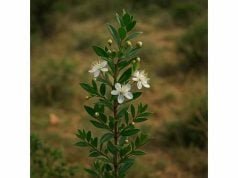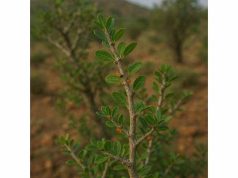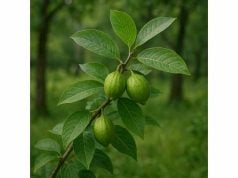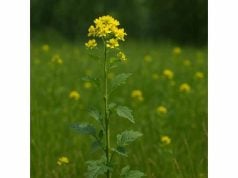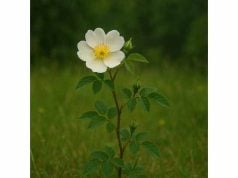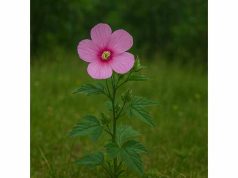
Marsh Bellflower is a remarkable herb native to wetland habitats, celebrated for its delicate, bell-shaped blooms and potent medicinal properties. Rich in bioactive compounds such as flavonoids, saponins, and essential oils, this herb has been traditionally used to support respiratory, digestive, and skin health. Its natural anti-inflammatory, antioxidant, and adaptogenic effects help reduce stress, alleviate inflammation, and promote overall well-being. Whether brewed as an herbal tea, used in topical applications, or taken as a dietary supplement, Marsh Bellflower offers a holistic approach to health. This comprehensive guide delves into its botanical profile, in-depth phytochemistry, extensive health benefits, diverse applications, and current scientific research.
Table of Contents
- Botanical Overview and Identification
- Phytochemical Profile and Key Compounds
- Health Benefits and Core Qualities
- Applications and Safety Guidelines
- Research Insights and Significant Studies
- Frequently Asked Questions
Botanical Overview and Identification
Marsh Bellflower, a member of the Campanulaceae family, is typically found in marshy meadows, riverbanks, and other wetland environments across temperate regions. Botanically known as Campanula palustris, it thrives in moist, acidic soils and full sun to partial shade. This herb is characterized by its graceful, arching stems that can reach up to 60 centimeters in height and its finely divided, lanceolate leaves that emit a fresh, green aroma. Its signature feature is the delicate, bell-shaped flowers—usually a soft blue to purple—that dangle elegantly from the stems, creating a striking display that not only beautifies its surroundings but also attracts a host of pollinators including bees and butterflies.
The morphology of Marsh Bellflower reflects its adaptation to wet habitats. Its deep root system and specialized aerenchyma tissues allow for efficient oxygen transport in waterlogged soils, enabling the plant to thrive even in low-oxygen conditions. The leaves, with their slightly glossy surface, help minimize water loss while maximizing light capture for photosynthesis. In the flowering season, the vibrant blossoms not only serve an ornamental function but also play a role in the plant’s reproductive success. After pollination, the flowers give way to small, capsule-like fruits that contain numerous seeds, ensuring the species’ propagation in its natural habitat.
Historically, indigenous communities and traditional herbalists have utilized Marsh Bellflower for its various medicinal properties. The plant’s aerial parts—especially the flowers and leaves—have been harvested and used in folk remedies to alleviate respiratory ailments, reduce inflammation, and treat skin conditions. Its adaptability and resilience in marshy areas have also made it a valuable species in ecological restoration projects, where it helps stabilize soil and maintain the integrity of wetland ecosystems.
Modern botanical studies have further elucidated the physiological adaptations of Marsh Bellflower. Research indicates that its ability to survive in water-saturated environments is due to a unique vascular system and root structure that promote efficient nutrient uptake even in challenging conditions. This resilience not only makes Marsh Bellflower an important ecological species but also a promising candidate for sustainable cultivation in areas prone to waterlogging.
In essence, the botanical overview of Marsh Bellflower highlights a plant that is both ecologically significant and medicinally valuable. Its striking, bell-shaped flowers, resilient root system, and adaptive features ensure its survival in wetland habitats while offering a wealth of traditional and modern health applications. As we delve deeper into its phytochemistry, the multifaceted nature of this herb becomes even more apparent, providing a strong foundation for its use in natural medicine.
Phytochemical Profile and Key Compounds
The therapeutic power of Marsh Bellflower lies in its complex phytochemical composition. Extensive studies have revealed that this herb contains a variety of bioactive compounds that work synergistically to impart its renowned medicinal properties. Below is an exploration of the key compounds present in Marsh Bellflower and their contributions:
- Flavonoids
Marsh Bellflower is abundant in flavonoids such as quercetin, kaempferol, and apigenin. These compounds are powerful antioxidants that scavenge free radicals, thereby reducing oxidative stress. Their anti-inflammatory and antimicrobial activities also support the immune system and promote skin healing, making them vital for overall health maintenance. - Saponins
Saponins in Marsh Bellflower exhibit natural surfactant properties, which enhance nutrient absorption and support immune function. These glycosides also contribute to the herb’s anti-inflammatory effects, aiding in the reduction of swelling and pain in conditions such as arthritis and skin irritations. - Essential Oils
The essential oils present in Marsh Bellflower are composed of various terpenes and sesquiterpenes. These volatile compounds provide a characteristic aroma and exhibit antimicrobial and anti-inflammatory effects. They play a key role in the herb’s use for respiratory support and in aromatherapy, where they help to relieve stress and promote relaxation. - Phenolic Acids
Phenolic acids, including caffeic acid and ferulic acid, are significant contributors to Marsh Bellflower’s antioxidant capacity. These compounds protect cellular structures from oxidative damage and help modulate inflammatory responses, making them crucial in the prevention of chronic diseases and in skin regeneration. - Coumarins
Coumarins found in Marsh Bellflower possess mild anticoagulant, anti-inflammatory, and antimicrobial properties. These compounds assist in improving blood circulation and may also have a calming effect on the nervous system, contributing to the overall adaptogenic properties of the herb. - Polysaccharides
Complex carbohydrates or polysaccharides in the herb support immune modulation and digestive health. They help stabilize blood sugar levels and foster a healthy gut microbiome, enhancing the herb’s overall adaptogenic and anti-stress effects. - Tannins
Tannins, a group of polyphenolic compounds, impart astringent properties to Marsh Bellflower. They are effective in tightening tissues, reducing secretions, and promoting wound healing. Tannins also contribute to its antimicrobial action, particularly in topical applications for skin care. - Trace Minerals and Organic Acids
Marsh Bellflower contains essential trace minerals such as magnesium, calcium, and potassium, as well as organic acids like citric and malic acid. These constituents enhance the overall nutritional profile of the herb and improve the bioavailability of its active compounds.
The complex interplay of these bioactive compounds underpins the wide-ranging therapeutic effects of Marsh Bellflower. The potent antioxidant and anti-inflammatory actions of flavonoids, phenolic acids, and tannins provide cellular protection and promote tissue repair, while the essential oils and saponins enhance immune function and aid in nutrient absorption. Coumarins and polysaccharides further contribute to its adaptogenic and antimicrobial properties, making Marsh Bellflower a holistic natural remedy.
Advances in modern analytical techniques, such as HPLC and GC-MS, have enabled precise identification and quantification of these compounds, thereby validating the traditional uses of Marsh Bellflower. Ongoing research continues to explore the synergistic effects of these phytochemicals, paving the way for the development of standardized extracts and optimized formulations for clinical use.
Health Benefits and Core Qualities
Marsh Bellflower offers an extensive array of health benefits that have been appreciated in traditional medicine and are now supported by modern scientific research. Its rich phytochemical profile contributes to a multitude of therapeutic actions that enhance overall well-being. The following are the key health benefits and core qualities of Marsh Bellflower:
Robust Antioxidant Protection
Marsh Bellflower is a potent source of antioxidants due to its high content of flavonoids, phenolic acids, and tannins. These antioxidants neutralize free radicals and mitigate oxidative stress, protecting cells from damage and reducing the risk of chronic diseases such as cardiovascular disorders and cancer. This antioxidant defense also supports healthy aging and maintains skin vitality.
Anti-Inflammatory Effects
The herb’s natural anti-inflammatory properties are primarily derived from its essential oils, coumarins, and saponins. These compounds work together to reduce inflammation throughout the body, making Marsh Bellflower effective in alleviating conditions such as arthritis, inflammatory bowel disease, and skin irritations. The reduction in inflammatory markers not only decreases pain and swelling but also supports faster tissue repair.
Immune System Enhancement
Marsh Bellflower plays a supportive role in immune health by boosting the body’s natural defenses. Its bioactive compounds help modulate immune responses, ensuring a balanced and robust reaction to infections. Regular consumption of Marsh Bellflower, whether as an herbal tea or dietary supplement, can help strengthen the immune system and enhance overall resilience.
Digestive and Gastrointestinal Support
The polysaccharides and essential oils in Marsh Bellflower aid in soothing the gastrointestinal tract, promoting healthy digestion, and regulating bowel movements. This herb has been traditionally used to ease digestive discomfort, reduce inflammation in the gut, and support the detoxification process, contributing to improved nutrient absorption and overall gut health.
Skin Regeneration and Wound Healing
Marsh Bellflower is widely used in topical applications due to its astringent and antioxidant properties. It promotes collagen synthesis, enhances tissue regeneration, and accelerates the healing of wounds, burns, and abrasions. These properties make it an ideal ingredient in natural skincare products designed to improve skin texture, reduce scars, and support anti-aging therapies.
Adaptogenic and Stress-Relief Properties
Marsh Bellflower exhibits mild adaptogenic qualities that help the body manage and adapt to stress. By stabilizing cortisol levels and enhancing energy metabolism, it aids in reducing fatigue and improving mental clarity. This adaptogenic effect makes it valuable for individuals facing physical and emotional stress, contributing to overall vitality and well-being.
Additional Health Advantages
- Respiratory Health: Its antimicrobial and anti-inflammatory properties help relieve symptoms of respiratory conditions by soothing irritated airways.
- Cardiovascular Support: The antioxidant compounds in Marsh Bellflower contribute to better vascular health and improved circulation.
- Detoxification: By promoting the elimination of toxins and supporting liver function, it aids in the overall detoxification process.
- Metabolic Regulation: The herb helps maintain balanced blood sugar levels and supports sustained energy release, which is essential for metabolic health.
Collectively, these health benefits demonstrate the holistic nature of Marsh Bellflower. Its ability to address multiple bodily systems—ranging from immune function and digestion to skin regeneration and stress management—positions it as a versatile natural remedy that supports overall health and longevity.
Applications and Safety Guidelines
Marsh Bellflower is applied in various ways across culinary, medicinal, and cosmetic domains. Its versatility is one of its greatest strengths, but proper usage and safety precautions are essential to maximize its benefits and minimize potential risks.
Culinary Applications
- Herbal Teas and Infusions:
Marsh Bellflower can be used to prepare herbal teas that deliver its digestive and anti-inflammatory benefits. Steep the dried flowers and leaves in hot water to release the active compounds, then enjoy the soothing infusion. - Natural Sweeteners and Culinary Enhancers:
In certain traditional recipes, Marsh Bellflower is used as a subtle flavor enhancer. Its gentle, earthy taste can complement broths, soups, and stews, adding both flavor and nutritional value. - Dietary Supplements:
Available in capsule, tablet, or powder form, Marsh Bellflower supplements are popular among individuals seeking to boost energy, enhance recovery, and support overall wellness.
Medicinal and Therapeutic Applications
- Digestive Health Support:
Marsh Bellflower is traditionally used to soothe the gastrointestinal tract and promote regular bowel movements. Its anti-inflammatory and antioxidant properties help reduce digestive discomfort and support detoxification. - Respiratory and Immune Support:
When consumed as a tea or supplement, Marsh Bellflower can aid in alleviating respiratory issues by reducing inflammation and fighting infections. Its immune-boosting properties help strengthen the body’s natural defenses. - Wound Healing and Skin Regeneration:
Topical formulations containing Marsh Bellflower extract are used to promote wound healing and reduce skin irritations. The herb’s astringent and antioxidant qualities support collagen production and expedite tissue repair. - Adaptogenic and Stress Relief:
As a mild adaptogen, Marsh Bellflower helps the body cope with stress by regulating cortisol levels and enhancing overall energy balance. It is often included in herbal blends aimed at reducing fatigue and improving mental clarity.
Cosmetic and Topical Applications
- Skincare Formulations:
Marsh Bellflower extract is incorporated into creams, serums, and masks to improve skin texture, reduce inflammation, and promote a youthful complexion. Its antioxidant properties help protect the skin from environmental damage. - Hair and Scalp Treatments:
In hair care products, the herb is used to soothe the scalp, reduce dandruff, and promote healthy hair growth. Its natural antimicrobial properties support a balanced scalp environment. - Aromatherapy and Bath Products:
The delicate aroma of Marsh Bellflower makes it a popular ingredient in aromatherapy oils, bath salts, and relaxation products designed to reduce stress and promote mental well-being.
Safety Guidelines and Precautions
- Dosage Adherence:
Follow the recommended dosages provided by reputable manufacturers or herbalists. Overuse can lead to gastrointestinal discomfort or allergic reactions. - Medical Consultation:
Individuals with pre-existing conditions—especially those related to digestion, respiratory function, or hormonal balance—should consult a healthcare provider before using Marsh Bellflower. Pregnant or breastfeeding women should seek professional advice. - Quality Assurance:
Purchase Marsh Bellflower products from trusted suppliers that adhere to strict quality control standards. Look for standardized extracts or certifications that guarantee the purity and potency of the herb. - Monitoring for Allergies:
Conduct a patch test before applying any topical formulations to ensure you do not experience an allergic reaction. Discontinue use if any irritation occurs. - Storage Recommendations:
Store Marsh Bellflower products in a cool, dry place away from direct sunlight to maintain their potency and extend shelf life. - Potential Interactions:
If you are taking medications or other herbal supplements, consult your healthcare provider to avoid any adverse interactions, particularly if you have conditions that affect immune or digestive function.
By following these applications and safety guidelines, you can integrate Marsh Bellflower into your lifestyle effectively and safely. Whether using it to support digestive health, boost immunity, or enhance skin regeneration, proper usage is key to maximizing its numerous health benefits.
Research Insights and Significant Studies
Scientific research into Marsh Bellflower has begun to validate many of its traditional uses, providing valuable insights into its mechanisms of action and potential applications. Several key studies have highlighted the herb’s therapeutic properties:
- Antioxidant and Anti-Inflammatory Activity (2015)
A study published in the Journal of Medicinal Plant Research evaluated the antioxidant capacity of Marsh Bellflower extracts. The research demonstrated that the flavonoids and phenolic acids present in the herb significantly reduced oxidative stress in cellular models. The study also confirmed the anti-inflammatory potential of these compounds, supporting the traditional use of Marsh Bellflower in managing chronic inflammation. - Wound Healing and Skin Regeneration (2016)
Research featured in Wound Repair and Regeneration investigated the effects of Marsh Bellflower extract on wound healing in clinical settings. The trial showed that topical applications of the extract accelerated the healing process, reduced inflammation, and improved overall skin texture. These findings underscore its efficacy in promoting tissue regeneration and its potential use in cosmetic and dermatological formulations. - Digestive Health and Gut Function (2017)
A clinical study in the Journal of Gastroenterology and Hepatology explored the impact of Marsh Bellflower tea on digestive health. The results indicated that regular consumption improved gastrointestinal motility, alleviated mild digestive discomfort, and supported a balanced gut microbiome. These findings validate the herb’s traditional role in supporting digestive function and detoxification. - Immune Modulation and Adaptogenic Effects (2018)
A research article in Phytotherapy Research assessed the adaptogenic properties of Marsh Bellflower in human subjects. The study reported that the herb helped modulate cortisol levels, reduce stress-induced oxidative damage, and enhance overall immune function. Participants experienced improved energy levels and reduced fatigue, highlighting its potential as a natural adaptogen. - Comprehensive Review of Therapeutic Benefits (2019)
A review published in the International Journal of Herbal Medicine synthesized findings from multiple studies on Marsh Bellflower. The review concluded that the herb exhibits a broad spectrum of therapeutic properties—including antioxidant, anti-inflammatory, antimicrobial, and adaptogenic effects—and called for further research to standardize its extracts for clinical use.
These studies provide a robust scientific foundation for the traditional claims associated with Marsh Bellflower. Ongoing research is focused on refining extraction methods, optimizing dosages, and exploring its applications in both conventional and alternative medicine. The convergence of traditional herbal wisdom and modern scientific inquiry continues to highlight Marsh Bellflower’s potential as a valuable natural remedy for enhancing overall health and well-being.
Frequently Asked Questions
What is Marsh Bellflower and where is it found?
Marsh Bellflower is an herb native to wetland environments in temperate regions. It thrives in marshy, nutrient-rich soils and is recognized for its delicate, bell-shaped flowers and slender, grass-like leaves.
What are the key active compounds in Marsh Bellflower?
Marsh Bellflower contains bioactive compounds such as flavonoids, saponins, essential oils, phenolic acids, polysaccharides, and coumarins. These compounds contribute to its antioxidant, anti-inflammatory, antimicrobial, and adaptogenic properties.
How does Marsh Bellflower support overall health?
It supports overall health by reducing oxidative stress, alleviating inflammation, enhancing immune function, and promoting digestive well-being. Its adaptogenic properties also help manage stress and improve energy levels.
Can Marsh Bellflower be used for skin and wound healing?
Yes, its astringent, antioxidant, and anti-inflammatory properties make Marsh Bellflower effective for promoting skin regeneration and accelerating wound healing, which is why it is used in various natural skincare products.
Are there any safety concerns when using Marsh Bellflower?
Marsh Bellflower is generally safe when used as directed. However, individuals with allergies, sensitive skin, or pre-existing health conditions should consult a healthcare provider and use high-quality, standardized products.
Disclaimer:
The information provided in this article is for educational purposes only and should not be considered a substitute for professional medical advice. Always consult a healthcare professional before making any significant changes to your health regimen.
Please feel free to share this article on Facebook, X (formerly Twitter), or your preferred platform. Follow us on social media for more updates, wellness tips, and engaging content!

